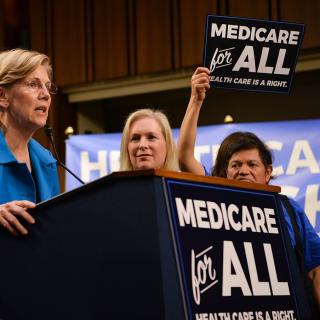I begin with a partial disclaimer. My knowledge about the failures of Columbus city government comes largely from the middle-to upper-middle-level officials with whom I have the pleasure of speaking with. They strive to make a deeply flawed “system” work as well as it does.
My efforts since last winter to stimulate more responsive and responsible actions, including enforcement and revision of existing laws, led to my collaboration with City Council legislative aides, the City Attorney and his office, Neighborhoods Engagement, Zoning/Code Enforcement, 311, and the Columbus Police Department (CPD).
The connections are primarily through personal contacts with individuals and their programs; they are selective and not systematic. The degree of disconnection, however, defies comprehension. City Councilmember and city departments are poorly aligned. Departments are not well connected. Therein lay multiple clues to the problems.
I have learned that certain Columbus police services, such as residential area parking violations, cannot be activated from Fridays at 5:00 p.m. until Monday mornings, because they depend on referrals from 311, which is not funded to operate during that time. One district police commander tells me dispatchers who answer nonemergency calls are sometimes wrong about this.
The city division responsible for trash left on the ground is different from the one in charge of garbage bins left on sidewalks and streets. One is Zoning/Code Enforcement; the other is Solid Waste/Refuse Investigation. This necessitates two different crews of inspectors. That means a trash-strewn University District where I live, especially on weekends.
To do what I do and know what I know: I am retired with flexible time, knowledgeable, have good communication skills, know how to do basic research, and am determined and persistent. And I am a tax-paying homeowner.
Columbus’ City Council is a relic of an undetermined, bygone era. The refusal to establish a geographically representative council makes the city an outlier in the United States today and historically. The current shift is to districts for communicating with a single Councilmember, while it retains at-large elections.
This is a contradiction in terms, an offense to citizens, and an affront to the principles of American democracy. For me, it limits my input. The only justification I have heard is an inaccurate, ethnically and racially prejudicial reference to late-19th-century “corrupt” big-city, ward politics. That is both historically wrong and more than a century out of date.
I do not and will not have a representative of my own. When I have a concern or a question, or even information to share, I now email one or more of four Councilmembers’ aides, because one excellent young aide taught me to do that while sharing coffee in my dining room.
I usually get a response because I have a sense of the murky division of labor. There is no guidance on the City or City Council websites about that. I have urged the City to issue a “citizens’ guide” but have received no response to my proposal.
Despite right-wing and Republican complaints that Columbus city government is progressive and even “socialist” (whatever they mean by that) – because it is affiliated with the Democratic Party, a ridiculous notion in itself – its leadership and policies are moderate at best, limited and too-often unimaginative, and overly dependent on slogans.
One example lies in Mayor Ginther’s constant repetition of his commitment to “racial equity” (I do not know what he means by that), while he does not join the national Communities Organized for Racial Equity (CORE) led by Los Angeles and Denver.
Similarly, the Mayor touts that Columbus Police will be assisted by 80 voluntary “chaplains” assisting on emergency calls to console neighbors and families of victims of violence (with no apparent regard for differences in religious affiliation). But I was astonished to learn very recently in a casual conversation with the CPD area commander for my University District that CPD has a force of almost 500 officers on the Critical Incident Team (CIT). They are trained to work on mental health incidents and with mental health specialists, and respond more appropriately to emergency calls. They are among CPD’s teams. That is never publicized, as it should be, loudly.
Columbus has no real leadership, either public or private. Public or media recognition comes from repeated pronouncements of self-serving and city-boosting slogans. Over most of its history, Columbus city government and its major institutions – including its media, art and historical societies, and educational establishments – have been consistent city boosters.
The city lacks any tradition of responsible, constructive self-criticism. Its major daily newspaper’s long-time owners, the Wolfe family, made no distinction between an impartial and independent press and active involvement in land development.
As geographer Kevin Cox confirms in his important new book, Boomtown Columbus (2021), for most of its history, land and property developers and development are inseparable from city government and its leadership. We see the results on the ground around us. Columbus’ lack of an identity is only one of many symptoms of this absence. Nicknames “Arch City,” “Cowtown” or capital of “Buckeye Nation” are neither accurate, inclusive, or compelling.
This parallels the near-total absence of any tradition of documented, written history and serious research. The Columbus Dispatch’s display of history is self-promoting, undocumented, and trivializing. So is WOSU’s in its limited local interest features. This lapse stems in large part from the Ohio State University Department of History’s neglect of local and state history. The result is a handful of unreliable, amateur histories that reinforce myths rather than correct them.
Lacking in leadership, Columbus has only a limited legacy of popular participatory government and inclusive urban democracy. This too shows on the ground throughout the city.
I call for a revolution in Columbus city government. We can begin with the creation of a truly representative City Council, and a radical, transparent reorganization of city government itself. It is 2021.
_____________________________
Harvey J. Graff is Professor Emeritus of English and History and Ohio Eminent Scholar at The Ohio State University. He is the author of many books on social history including The Literacy Myth: Literacy and Social Structure in the Nineteenth Century City (Academic Press, 1979, reprinted with new introduction 1991) and The Dallas Myth: The Making and Unmaking of an American City (University of Minnesota Press, 2008). His specialties include the history and present condition of literacy and education, children and families, cities, interdisciplinarity, and contemporary politics, culture, and society.



